
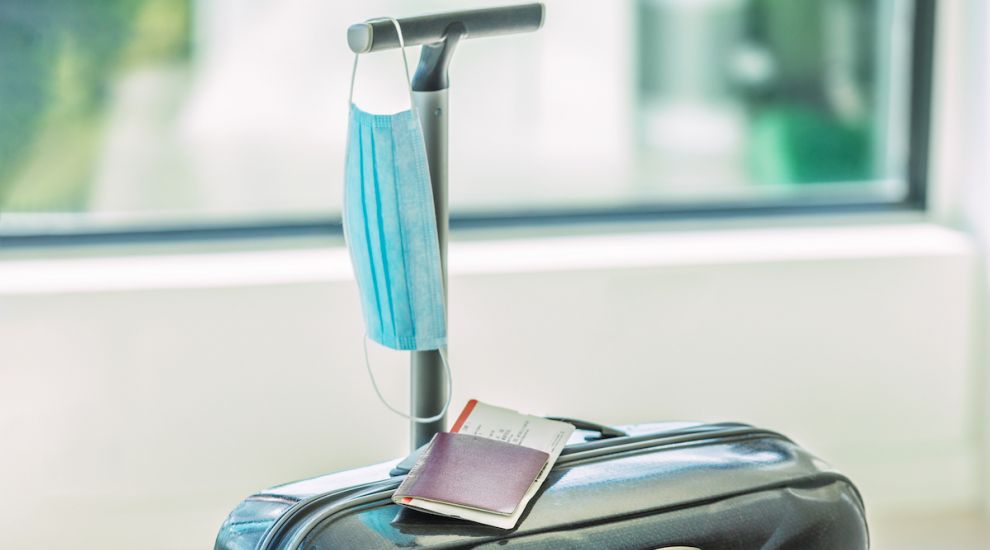

Special travel rules for parents and guardians to help bring home boarding school and university students home are being drawn up ahead of more than 150 regions in England turning amber and red this weekend.
Government officials said yesterday that they were considering the circumstances of universities and boarding schools, such as whether they have an in-house testing regime or ‘bubble’ system.
One piece of guidance under consideration is whether students living in a red zone, but who are situated in a more rural boarding school campus operating in a ‘bubble’, could face more lenient travel rules. Currently, anyone that spends a night in an amber or red region has to quarantine upon arrival in Jersey for five or seven days respectively.
The Government aims to release this guidance by the end of this week, before half-term.
The assurance to parents and guardians came amid news of major travel changes being implemented at 00:00 on Saturday to allow islanders time to reconsider their plans and make alternative arrangements if necessary.
CLICK TO ENLARGE: English regional travel restrictions.
The changes will see 159 regions in England moved off of the green list, leaving only 23 green regions left. 50 have been changed to amber, and 109 to red. There is now a total of 135 amber regions and 158 red regions in the UK.
Ireland has also seen a huge hit, with zero green regions, 11 amber and 15 red – the latter a rise from just two.
Scotland’s green regions dropped from 15 to 6, its amber regions 14 to 9, and it saw an increase in red regions from 3 to 17.
Wales only has one green region left, going down from 7, with its amber regions going down from 10 to 8 and its red regions increasing from 5 to 13.
Jersey’s closest European neighbour France’s remaining 4 green regions were reduced to 0. Its amber regions from 42 to 29, and its 58 red regions increasing to 75.
The rising cases in other jurisdictions have been reflected in Jersey’s own covid numbers, which topped 60 after a spike of 30 cases over the weekend – 25 of which were identified via border testing.

Pictured: There will be no more green zones in France when the travel restrictions come into force this weekend.
In the wake of the spike, the Chief Minister, Senator John Le Fondré, moved to reassure islanders last night.
“Every Monday, we release results from Friday, Saturday and Sunday – that is 43% of our weekly results released in one day. This week, 30 new cases were found from 3,588 swabs, which is a positivity rate of 0.84%. This means 99.16% of people coming into Jersey tested negative,” he said in a statement.
Senator Le Fondré added: “Since airline schedules resumed on July 3rd, around two-thirds of positive results have been from returning Islanders. And over this weekend, seventeen of the twenty-five arrivals were residents and eight were visitors.
“We do not isolate arriving passengers for a longer period because the risk is so low (below 1%), and to isolate 99% of people needlessly is against the advice of our Deputy Medical Officer of Health, Dr Ivan Muscat, due to its lack of proportionality.”
In the wake of the stats, some islanders had called for the borders to be closed, but the Health and External Relations Ministers explained yesterday that the effect of passenger numbers dropping and airlines pulling some routes would be the same.
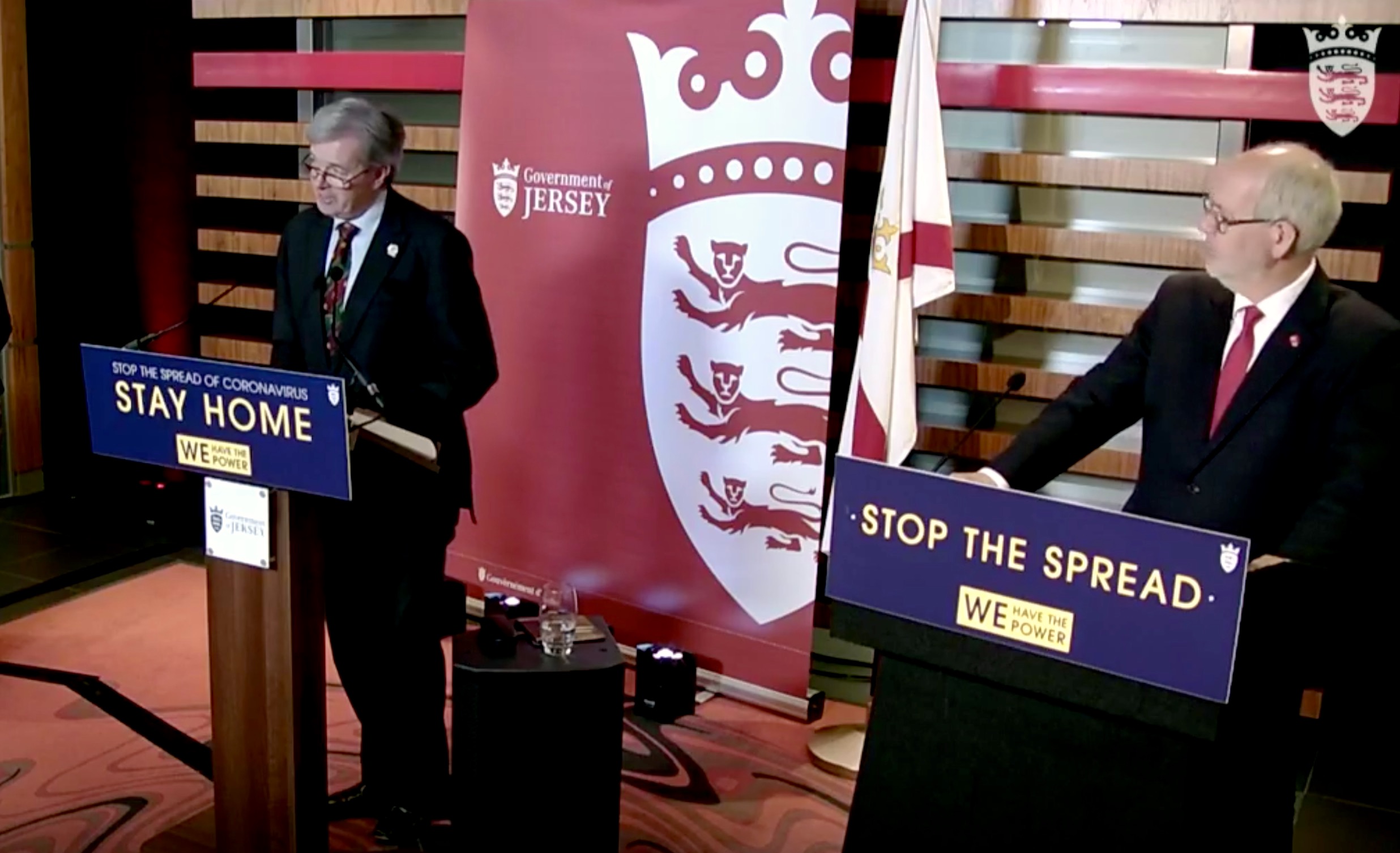
Pictured: The Chief Minister moved to reassure islanders last night.
External Relations Minister Senator Ian Gorst described it as border closure “by default.”
One flight from Exeter to Jersey yesterday was carrying fewer than five passengers.
The Government has already handed Blue Islands a £10m loan to safefuard Jersey’s air links. It confirmed to Express yesterday that no emergency financial measures have been issued to easyJet, British Airways or struggling ferry provider Condor.
The Environment Minister, Deputy John Young, said the airlines should make changes to keep themselves flying.
“I think the airlines should really recognise that if the industry wants to survive, it needs to adapt and change the way it currently fills aircraft with large number of passengers at cheap knockdown prices,” he said.
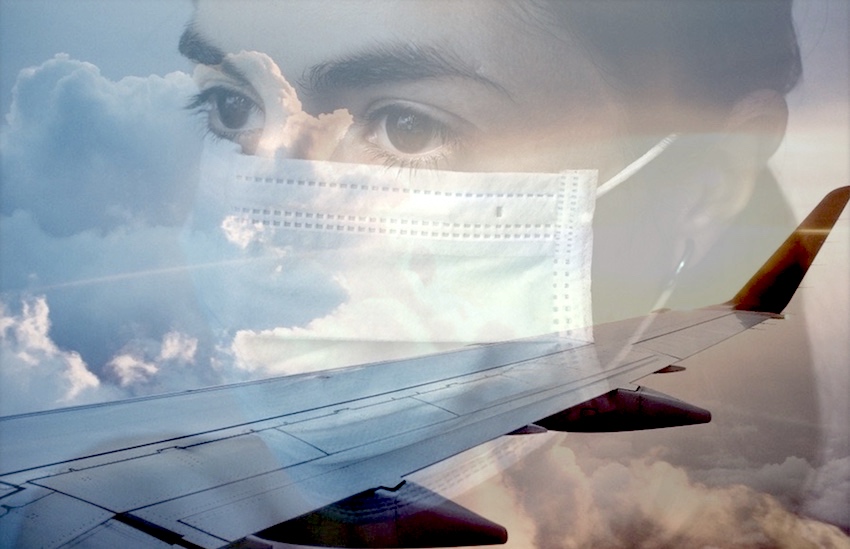
Pictured: The External Relations Minister said borders would shut "by default."
He argued that instead they should instead look to “restricting the number of passengers on aircraft so that they don’t have to sit so close", adding: "Social distancing could be enabled leaving a spare seat or spare row between passengers.”
The Minister continued: “I wouldn’t want to go back to just central travel early, but a decision to opt for private travel should take on a responsibility to follow restrictions.”
Deputy Young, who has previously broken ranks on the Government’s travel policy, added that he would like to see tests upon departure as well as arrival.
He also posed the question, “Should there now be a requirement for people to isolate until the Day 5 test?”
He referenced Guernsey’s strategy, whereby arrivals are only tested on the seventh day, and that he wants “to hear the advice about a five-day test”, pointing out that six Jersey cases identified over the weekend only tested positive on Day 5 and not on Day 0.
When Deputy Young’s idea on five-day isolation was put to him, the Health Minister, Deputy Richard Renouf, said: “We’ve always acted on medical advice and it is a question of assessing the risks.”
He added that, with the new regional classifications, “we know that many more people coming into the island will have to isolate for five or 14 days regardless.”
Commenting on travel changes generally, he said: “I think what we’ve announced today is just a measure that emphasises the fact that we are controlling the virus as it comes into the island.
“We are keeping rates low and we are able to track and trace who arrive in the island and their contacts to make sure there is not a spread in the general population.”
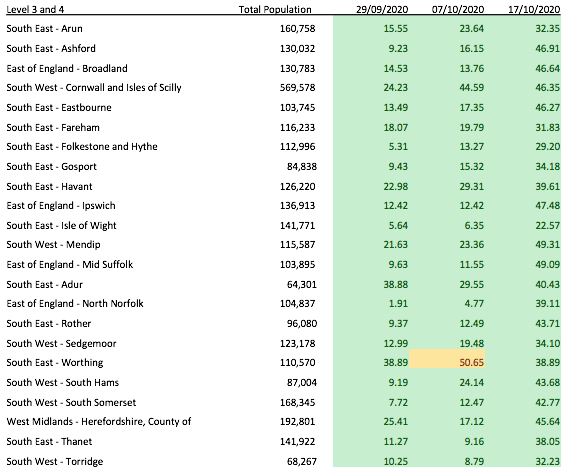

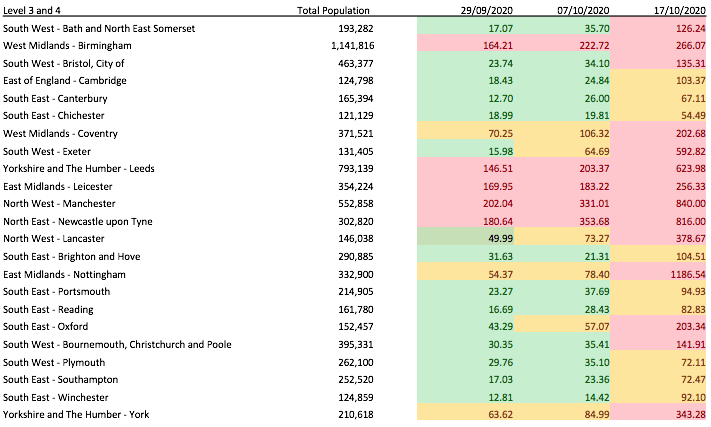

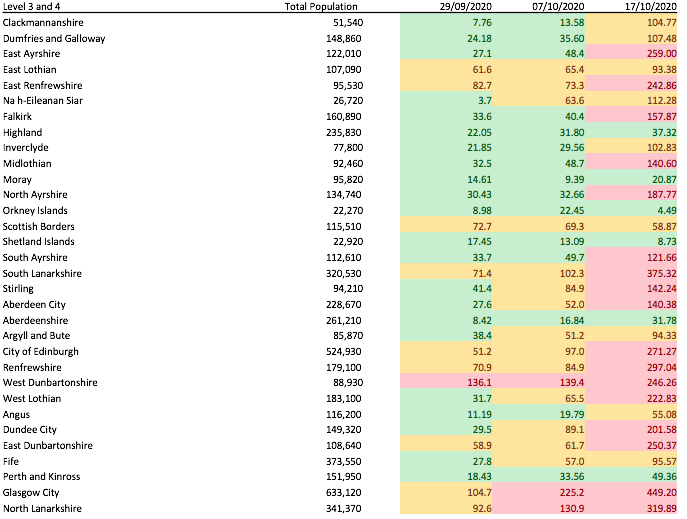
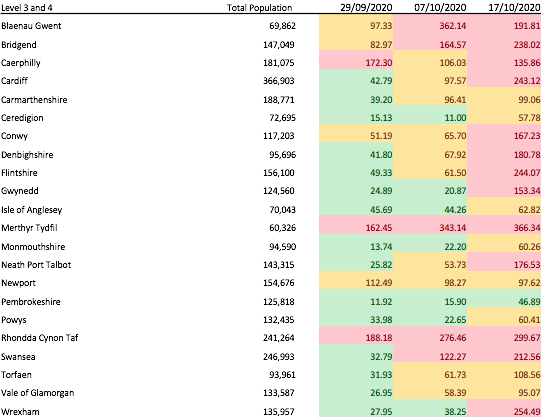
Comments
Comments on this story express the views of the commentator only, not Bailiwick Publishing. We are unable to guarantee the accuracy of any of those comments.